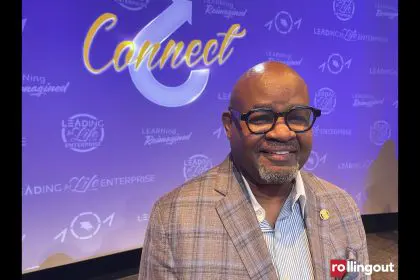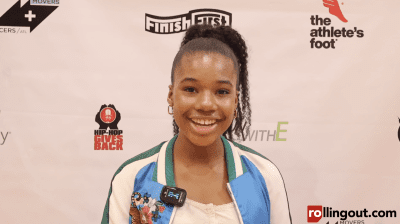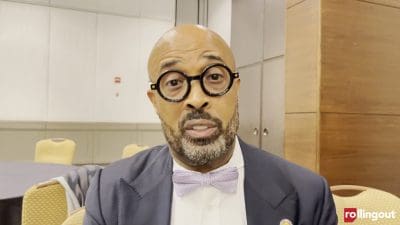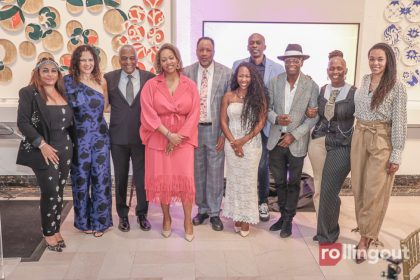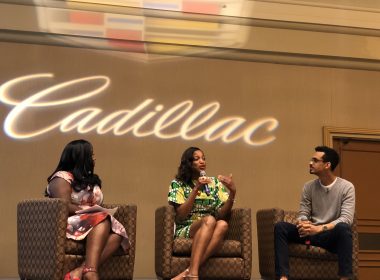Since 1975, Rev. Jesse Jackson’s PUSH Excel has promoted academic excellence by working with large corporations to create opportunities, transform the lives of students and improve communities. The program has received U.S. Department of Education recognition for inspiring minority students to move beyond their circumstances of poverty, violence, and inadequate resources to achieve excellence through education and positive community involvement.
This year PUSH is celebrating it’s 25th annual Rev. Dr. Martin Luther King Jr. Scholarship Breakfast with the theme of “King’s Unfinished Agenda” to continue to highlight Dr. King’s commitment to empowering young people through academic readiness, strength of character, and corporate financial support. Walgreens’ John Gremer, Northern Trust’s Lyle Logan, and Nielsen’s Cheryl Pearson-McNeil will serve as co-chairs as the celebration aims to raise over $600,000 to fund a number of scholarships for deserving students.
In addition to the annual breakfast, PUSH Excel offers life-altering academic experiences to many under-served students including the annual Historically Black Colleges and Universities Tour, the Parent-Student-Teacher Engagement Initiative, Excel STEM, and its financial literacy program in partnership with the University of Illinois at Chicago’s Department of Economics.
Rolling out recently sat with Rev. Jackson to discuss the upcoming breakfast along with other hot button topics.
Tell us about the upcoming 25th annual Push Excel Breakfast?
We’re caught in a dilemma of second class investment in our youth with first class expectations. So we are underfunded but expected to overproduce. They take inner-city schools without foreign languages and without higher math being taught and (make them) take the same exams as suburban schools but the measurement reflects the investment. We take these youth against the odds and send them to college. One of our youth who is being featured this year is now an engineer at Florida A&M University. She could not make it to college had she not been our investment.
In your opinion, is the educational aspect understated when talking about the problems of our youth?
It is because the ratio of those who drop out or are forced out of high school and the jail population is almost direct. The ratio of those who get low income and drop out of high school is almost direct. So the relationship between education, life expectation, earning expectation, and being free or in prison can not be understated.
Do you feel having larger corporate sponsors involved in the breakfast is important to show their investment in our youth?
Yes but what’s most important is that the youth who are attending bring their parents. Because at the end of the day, education also requires an attitude of: I’m going to get it! For instance, we have an attitude and expectation about basketball, you know? With or without good tennis shoes, whether there is a net on the rim or not, we’re going to play. We have to have the same attitude and determination about education because strong minds break strong chains. Many of our youth in the inner-cities have such limited mobility. We do an annual college tour on spring break so the kids can see a Fisk University or Tennessee State or Hampton, Howard, Morehouse and Clark and so forth. Many of the students who live in Woodlawn have never seen the University of Chicago. It doesn’t exist to them. Some who grew up on the north side have never seen Northwestern. So part of the mission and part of the scholarship money goes to helping expose them to these things and places to help lift their imaginations.
What do you think of early childhood development and the role it plays in helping instill standards in children?
You have pre-natal care, head start, and daycare on the front side. Then you have jail care and welfare on the back side. It’s just that simple. It really starts early on and those vital years missed can never be compensated for in terms of learning and in terms of trauma. Part of the goal with this program is to fulfill Dr. King’s mission and his sense of education. Dr. King finished high school at 15. He finished college at 19. He finished seminary school at 22 and got his PhD at 26. He took learning seriously. He told me he used to read at least two books a week. His capacity to learn and think ultimately became a weapon. Like I said strong minds break strong chains.
Do you think Dr. King’s legacy on education is understated?
It is understated because we see him projected over and over as the dreamer, as if he’s a dreamer with no substance. A lot of times we don’t realize he was able to handle all situations, domestic and global because he had the capacity to do so. He had a world view that was well informed.
Speaking of Dr. King, what are you thoughts on the movie Selma?
I saw Selma: Part 1. I was there.
What’s your take on the controversy surrounding the portrayal of President Lyndon B. Johnson in the film?
Every movie of this scale and magnitude, by nature, creates some controversy, but at the end of the day there is no denying President Johnson’s place in history as a transformative president. The Voting Rights Act — Lyndon Johnson. The Housing Act — Lyndon Johnson. The Civil Rights Commission — Lyndon Johnson. The Food Stamp Program — Lyndon Johnson. No one ever passed as much civil rights and social legislation as Lyndon Johnson. His record speaks for itself. He could have allied with white southerners. If he had done that we couldn’t have won that battle. Instead, he allied with us against white southerners and they called him a traitor to their cause. That’s why you don’t hear much glorification of him. We got the right to vote in 1870 but we left it in the hands of the former slave masters. It took us 95 years to get it implemented. The Voting Rights Act as we know it? This rapid rise in participation? That’s all Lyndon Johnson. I have high respect for him.
Having been in Selma with Dr. King, what can you tell us about that time that we may not see in the film?
Well the atmosphere was so full of fear because they were killing people. It was so much corruption mixed with hate. Mrs. Fannie Lou Hamer couldn’t march because she was in jail. The sheriff told the black inmates ‘beat her or we’ll beat you.’ They beat her unconscious in jail. Jim Forman could not make it to join us because he was in jail in Louisiana on trumped up charges. They jailed people. So it was a certain atmosphere of fear but we overcame it with courage.
What do you think of movements such as “millions march” in the aftermath of the Michael Brown and Eric Garner cases?
We’re right to fight against the brutality and killing of unarmed black men. On the other hand, while we’re focused on that area I recently asked a group of youth two questions: First I asked how many of them would have liked to serve on the jury in the Michael Brown case. They all said ‘”Yes.” I asked how many were registered to vote. They said ‘I’m beyond voting. I’m not into voting.” I told them only registered voters can serve on a jury and only juries can convict. They didn’t understand the relationship between voting and having that power. The second thing I found to be amazing is…I asked the students who was the Attorney General. They all said Eric Holder. Then I asked who was the Secretary of Commerce? – Blank look. Who is the head of the small business administration? – Blank look. We’re putting so much focus on justice – which is obviously critical — but the lack of access to health care, education and jobs is related to access of capital. We work harder and make less or cant work at all so we’re subjected to many attacks.
Did you think number of people that came out for the New York march was a good sign of the people’s willingness to get involved?
Yes, if it translates into increased registration. The King holiday must be the week the most voters register every year. It must be some agenda. It should be the season we focus most on the war on poverty. Poverty is a weapon of mass destruction. People who are poor cant pay their rent. They have to choose between the rent, or heat, or medicine, or food. Those are tough life choices. Dr. King’s last campaign was fighting a war on poverty and ending the war in Vietnam. And today we’re still fighting more wars abroad and diminishing programs here at home. And that’s the unfinished business of Dr. King that we must complete.
The 25th annual Push Excel MLK Scholarship Breakfast will be held on Monday, Jan. 19 and the Chicago Hilton and Towers. For more information on the breakfast, please visit www. pushexcel.org or www.rainbowpush.org.



